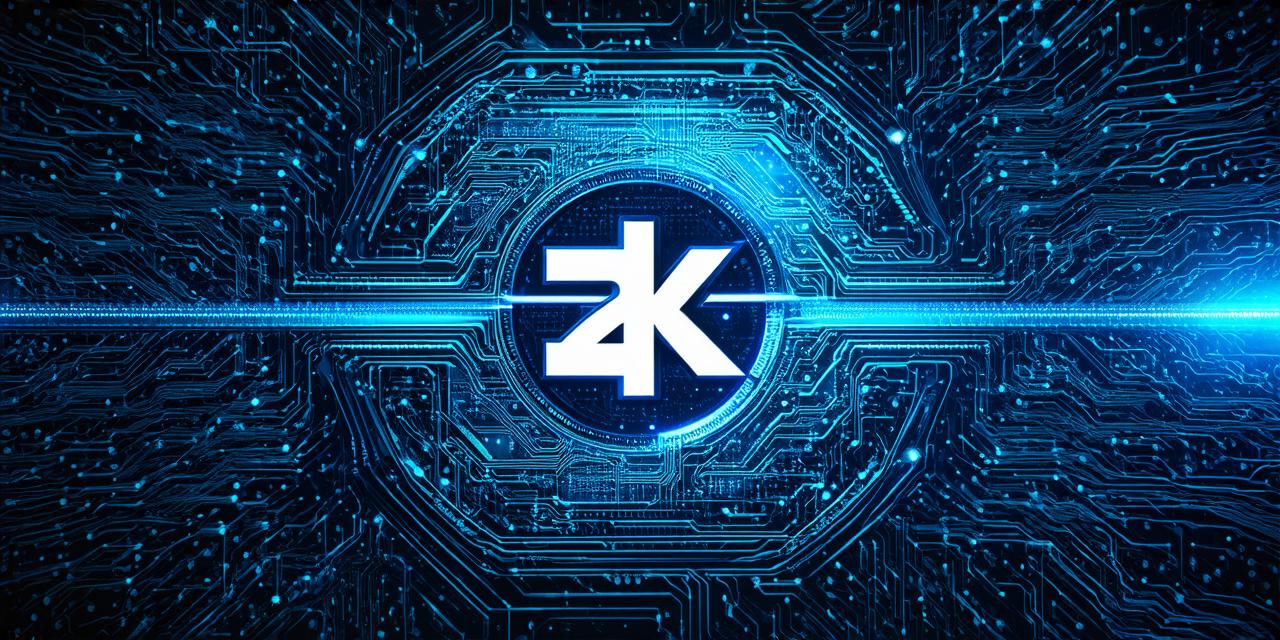Blockchain Technology: Solving Problems Across Industries
Blockchain technology is a decentralized and secure way to store data. It consists of a chain of blocks that contain information about transactions or other events. Each block is linked to the previous one, creating an immutable and tamper-proof record of the data.
1. Transparency and Trust: The Backbone of Blockchain Technology
Blockchain technology is built on the principles of transparency and trust. Every transaction made on a blockchain is recorded in a decentralized database, making it difficult or impossible to alter without being detected.
This creates a tamper-proof record of all transactions and ensures that everyone involved can see exactly what is happening. This is particularly important in industries where transparency and trust are critical, such as finance and healthcare.
1. Supply Chain Management: Improving Efficiency and Reducing Fraud
The supply chain is a complex web of interconnected systems and processes that are responsible for moving goods from production to consumption. Blockchain technology has the potential to revolutionize supply chain management by providing a secure and transparent way to track products throughout the entire process.
By using blockchain technology, companies can create a tamper-proof record of every product’s journey through the supply chain, from raw materials to finished goods. This enables them to identify bottlenecks and optimize processes, resulting in faster delivery times and reduced costs.

1. Voting Systems: Ensuring Electoral Integrity
The integrity of voting systems is a major concern for many people around the world. Blockchain technology has the potential to address some of these concerns by creating a secure and transparent way to conduct elections.
For example, in the 2018 midterm elections in West Virginia, blockchain technology was used to create a tamper-proof record of every vote cast. This ensured that no one could tamper with the results and that the process was completely transparent.
1. Cybersecurity: Protecting Data from Unauthorized Access
Cyber attacks are becoming increasingly common, and they can have devastating consequences for individuals and organizations alike. Blockchain technology has the potential to improve cybersecurity by creating a decentralized and secure way to store data.
By using blockchain technology, companies can create a tamper-proof record of all their data, making it difficult or impossible for hackers to access or alter it. In addition, blockchain technology can enable faster and more efficient responses to cyber attacks, allowing organizations to quickly isolate affected systems and prevent further damage.
1. Intellectual Property: Protecting Creativity and Innovation
Intellectual property (IP) is a critical aspect of many industries, but it can be difficult to protect creative works and inventions from theft or misuse. Blockchain technology has the potential to address some of these concerns by providing a secure and transparent way to store and manage IP.
By using blockchain technology, creators and inventors can create a tamper-proof record of their work, making it difficult for others to copy or misuse it. In addition, blockchain technology can enable faster and more efficient processes for licensing and royalty payments, ensuring that creators are fairly compensated for their work.
1. Identity Verification: Simplifying the Process
Identity verification is a critical aspect of many industries, from banking to healthcare. However, it can be time-consuming and expensive to verify identities manually, particularly in industries where there are large numbers of people involved.
Blockchain technology has the potential to simplify identity verification by enabling secure and efficient storage of personal data. By using blockchain technology, individuals can create a secure and tamper-proof record of their personal data, making it easy for them to verify their identities when needed. This can save time and money for both individuals and organizations, making identity verification faster and more efficient.
1. Healthcare: Improving Patient Outcomes and Reducing Costs
The healthcare industry is facing a number of challenges, including high costs and inefficiencies in the system. Blockchain technology has the potential to address some of these concerns by enabling secure and transparent storage of patient data.
By using blockchain technology, healthcare providers can create a tamper-proof record of every patient’s health information, making it easier for them to provide effective care. In addition, blockchain technology can enable faster and more efficient processes for billing and reimbursement, reducing costs for both patients and providers.
1. Vaccination Campaigns: Improving Access and Tracking
Vaccination campaigns are critical for protecting public health, but they can be challenging to implement, particularly in areas with limited resources. Blockchain technology has the potential to improve vaccination campaigns by enabling secure and efficient tracking of vaccine distribution.
By using blockchain technology, healthcare providers can create a tamper-proof record of every vaccine distributed, making it easier for them to track progress and ensure that vaccines are reaching those who need them most. In addition, blockchain technology can enable faster and more efficient processes for verifying vaccine certificates, making it easier for individuals to travel across borders.
1. Food Traceability: Improving Safety and Reducing Waste
The food industry is facing a number of challenges, including foodborne illnesses and waste. Blockchain technology has the potential to address some of these concerns by enabling secure and transparent tracking of food products throughout the supply chain.
By using blockchain technology, companies can create a tamper-proof record of every product’s journey through the supply chain, from farm to table. This enables them to identify issues with food safety and waste, resulting in faster and more efficient processes for recalling contaminated products and reducing waste.
1. Carbon Emissions: Reducing Environmental Impact
Climate change is one of the biggest challenges facing the world today, and carbon emissions are a major contributor to it. Blockchain technology has the potential to reduce carbon emissions by enabling secure and transparent tracking of carbon credits.
By using blockchain technology, companies can create a tamper-proof record of every carbon credit earned or purchased, making it easier for them to track their environmental impact and make adjustments as needed. In addition, blockchain technology can enable faster and more efficient processes for trading carbon credits, reducing costs for both buyers and sellers.
Conclusion
Blockchain technology has the potential to solve a wide range of problems in various industries. From supply chain management to voting systems, blockchain technology can improve efficiency, reduce fraud, and increase transparency. As blockchain technology continues to evolve, we can expect to see even more innovative applications and solutions emerge. Whether you are a blockchain developer or simply interested in the potential of this exciting technology, there is no doubt that it has the power to transform many aspects of our lives.
FAQs
1. What is blockchain technology?
Blockchain technology is a decentralized and secure way to store data. It consists of a chain of blocks that contain information about transactions or other events. Each block is linked to the previous one, creating an immutable and tamper-proof record of the data.
1. How does blockchain technology work?
Blockchain technology works by using a network of computers to validate transactions and add them to the chain. Each computer in the network has a copy of the entire chain, ensuring that the data is secure and decentralized.
1. What are some common applications of blockchain technology?
Some common applications of blockchain technology include cryptocurrency, supply chain management, voting systems, and identity verification.
1. Is blockchain technology secure?
Yes, blockchain technology is very secure due to its decentralized and tamper-proof nature. It is nearly impossible for hackers to access or alter the data stored on a blockchain.
1. What are some challenges associated with blockchain technology?
Some challenges associated with blockchain technology include scalability issues, high energy consumption, and regulatory uncertainty. However, as the technology continues to evolve, these challenges may be overcome.
